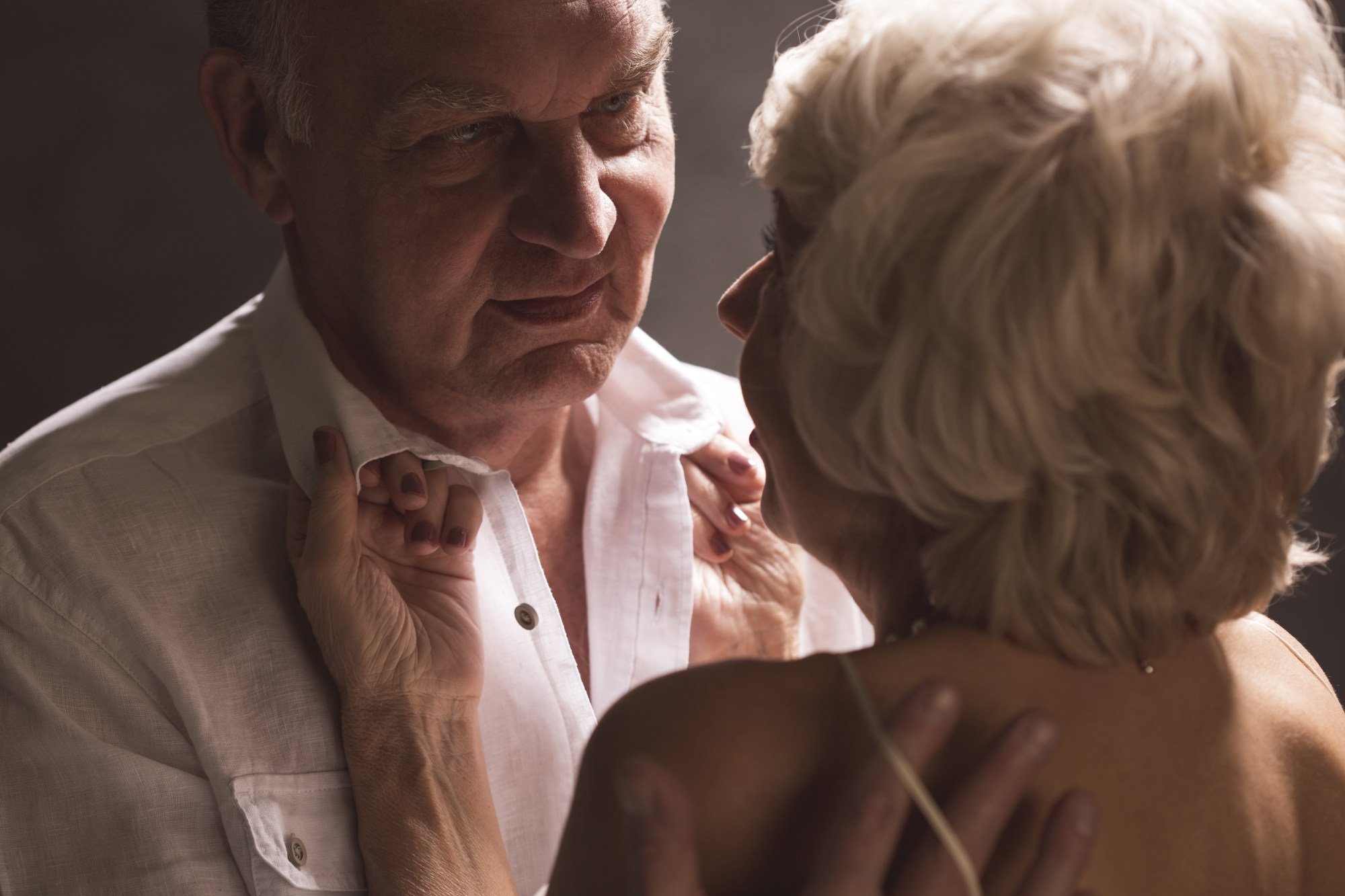
Sex after 60: why it’s good for you – your sleep is better, your heart is healthier and you feel better about yourself, experts tell us
- There is little representation in movies or on TV of old people enjoying sex – but they should remain sexually active, say therapists and doctors
- Asian societies in particular need to talk about sex more, and younger family members can advise older ones about safe sex, says a Singapore-based therapist
In popular culture – from advertising to movies and television – the message is clear: the elderly are not sexually active or intimate, says Hong Kong sex therapist and relationship counsellor Cynthia Ho.
“Whenever the media expresses the need for, or enjoyment of sex, they mostly use healthy models that represent youth and beauty,” says Ho, of the Neo Health consultancy in the city’s Central district. “Anyone outside this category rarely matters.
“People start to think that those who are not young, beautiful or healthy, do not – or should not – enjoy sex.”
To change attitudes, Ho says education is key. “It’s not just a lack of sex education for students at Hong Kong schools,” says Ho. “More public education is needed about the importance of sexual health so people understand it’s not only about sexual intercourse – it is a state of physical, emotional, mental and social well being related to sexuality as a whole.

“This includes, but is not limited to, the ability to be intimate with a partner and to be able to communicate explicitly their sexual needs and desires – even for seniors.”
There is very little new research out of Hong Kong on the subject of sex and intimacy in later life.
Take your sex life to another level with these experts’ tips
A 1999 study by non-profit Christian Family Service Centre on elderly peoples’ attitudes towards sex and sexual behaviours found about two-thirds of the respondents considered sex in later life as unnecessary.
In 2004, a study of Chinese men aged 65 and over’s knowledge of sex, attitude towards sex and sexual behaviour, published in The Hong Kong Practitioner, found 40 per cent of the 528 surveyed considered sexual intercourse to be harmful to health when you are old.
In July this year, a survey by lifestyle brand We-Vibe, of 14,500 participants from 17 countries, found that 36 per cent of Hong Kong people believe sexual desire decreases with age.

The results inspired a We-Vibe campaign, Silver Sex, to debunk myths surrounding sex in old age. It talked to seven people over the age of 60 about their sexual activities and how physical changes impact sexuality.
“We can’t talk about older people’s lust and preferences without talking with them,” says Johanna Rief, We-Vibe’s head of sexual empowerment.
“Love and lust don’t retire and we want to encourage people with our videos to talk about it and find new ways to experience their sexuality without shame.”
In one campaign video, American author and advocate for ageless sexuality Joan Price encourages people to let go of what sex used to be “because we are not going back to being 20”.
“Make it a journey of exploration to find out what works for you now. Find out what brings you great delight, arousal and orgasms at your age right now,” Price says.
In April, British charity Relate launched “Let’s Talk the Joy of Later Life Sex”, a campaign that aims to tackle the stigma around the subject of sex and intimacy in later life.
Launched in collaboration with British photographer Rankin, the campaign was a response to a poll by 3Gem market research which found that two-thirds of over-65s say sex and intimacy for their age group is rare (43 per cent) or never occurs (24 per cent), compared with a fifth of 18- to 24-year-olds.
The poll also found that just one-fifth of British people think society is OK talking about sex and intimacy in people aged over 60.
So how does someone start a conversation on the subject? “Family members need to accept that the elderly also need a healthy sex life,” says Ho. “Discussing sexual topics among family members should be no different to other topics,” she says.
We don’t have many positive depictions or representations of Asian people who are comfortable or celebrating their sexuality
People need to be straightforward and honest instead of judgmental, and respect the fact that every individual has different needs, Ho says.
“Younger generations can even bring up the conversation first and try to understand whether the elderly have any sexual needs or difficulties, so that the elderly can express their thoughts and feelings without embarrassment.”
Singapore-based clinical sexologist Martha Tara Lee agrees. “Over the past few years we’ve seen a rise in the rates of sexually transmitted infections among older people because most people don’t expect them to be sexual,” says Lee.
How Hong Kong health care system fails city’s elderly
“So the sex talk is especially necessary with widowed parents or newly single parents since their kids or close ones might have more knowledge around safer sex.”
Lee says more discussion of sexuality is needed in Asian societies. “We don’t have many positive depictions or representations of Asian people who are comfortable or celebrating their sexuality,” she says. “Without such conversations or role models, the topic continues to be viewed as personal, private, taboo or even shameful.”
Lee wants to see a shift in language away from labels such as “dirty old man” or “little old lady”. She says some progress has been made.
“Social media platforms like TikTok that allow elderly people to show themselves as fun, healthy and sexy are helping to shift the barometer.”

Lee says sex plays an important role in a person’s sense of well-being.
“The sexual experience enhances emotional attachment and facilitates intimacy in our relationships,” she says.
“You may be older and wiser, but you also are capable of remaining sexual. There is no age limit on sex.”
How much sex is normal? Four tipsy women on how much they ‘do it’
Sexologist Martha Tara Lee’s tips for old people to stay sexually active
2. For women, when pelvic floor muscle strength starts to slip (which is accelerated by the loss of oestrogen), you may feel as though “nothing happens down there any more”. Exercise your pelvic floor to maintain a connection with the experience of sexual arousal. Tension of the pelvic floor is critical to most people’s experience of “feeling turned on”.

3. In the rush of everyday life, very often sex doesn’t get time for warm-up. Accept that you may need more time for arousal. Snuggles, gentle caresses and physical intimacy are especially important to a woman. By losing some of the focus on the orgasm, older men can achieve a great deal of pleasure from sexual intimacy.
4. Use it or lose it. When you have an orgasm, the contractions bring blood flow to your pelvis, help keep your tissues strong and thick, and your pelvic muscles strong and flexible. It also utilises your circulatory system and nervous system.
Having regular orgasms (at least one per week) helps keep these muscles in shape, and reminds your body how to “do” sexual arousal. A vibrator can speed up the process.
Sex shouldn’t be painful. Tips and advice for postmenopausal women
5. You deserve the best quality of care. Take ownership of your sexuality by developing awareness of body changes, asking your doctor questions and getting accurate information. A sexologist can help address your sexual concerns, including how to modify your sexual techniques to continue having pleasure from sex.

